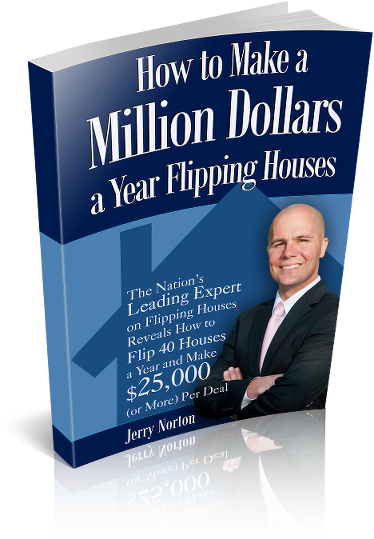
Using Private Money to Fund Your Deals
The primary objective of every successful fix and flipper is to constantly raise more and less expensive money. While there are several viable no-money down strategies for doing real estate investing, at some point in order to grow your business and do more deals, you will need to become proficient at raising capital.
There are several sources of capital to fund your deals, most investors use hard money and private money.
Watch this video to learn the difference between Hard Money and Private Money:
In this article, I will focus primarily on raising private money.
Private Investors: These are individuals that lend money for real estate deals. Raising private money is a matter of presenting a safe and attractive return on investment to individuals with cash. Here are a few of the benefits for a private money investor:
- Safety: Unlike the stock market, the property is used as collateral, which means the money investor holds a lien position in the property in the amount of the investment. In other words, if you get hit by a bus while crossing the street, the money investor can liquidate the property (collateral) to be made whole on the loan.
- Equity: Most private investors will not lend 100% of the value of the property. To protect his/her investment and minimize the risk, most private investors lend 65% to 70% of the market value.
- Security: There’s a promissory note, mortgage or trust deed with first lien position and insurance.
- Predictability: No more roller coaster stock market or 1% CDs.
- Tax Advantages: If using an IRA, he/she can invest tax-deferred or tax-free (depending on how it’s structured).
- No Hassles: The private investor has a passive role and does not manage the renovations or marketing and selling the property.
-
High Returns: Start earning 8–12% return on investment. “Where else are you going to get that kind of return on your money?”

- Debt Investor: The money investor makes an actual loan on the underlying property and you agree to pay a certain interest rate over a certain amount of time until the loan is paid off in full. Most loans are “interest-only,” which means that the payments do not pay down any principal. The interest can be paid monthly or deferred and paid in full when the loan comes due.
- Equity Partner: The money investor lends you money for the deal but in return gets a percentage of the profit.
Let’s discuss the differences between each and the pros and cons.
Equity Partner: When I first started, I used equity partners to grow my business. The arrangement was simple: The equity partner provided 100% of the funds (purchase and rehab money) and in return received 50% of the net profit.
Example: Let’s say that the total capital is $100,000 to buy and renovate a property with a net profit of $30,000 and the total turnaround time is 140 days.
Pros:
- No Monthly Payments: Since he is getting his return at the time of the sale, you are not making a monthly payment on the loan.
- Less Stress: This reduces the stress somewhat on your part on the turnaround time. Obviously the quicker you sell it, the sooner you’re going to make your profit and do another deal, but if it takes 160 days instead of 140 days, you’re not out any additional costs.
Cons:
- Big Profit Share: In this example, you’re going to pay the equity partner $15,000 out of the $30,000 net profit, which is steep.
Debt Investor: With this structure, the private investor provides funding in return for an interest-only payment. Typically, the interest is between 8–12%. Obviously, as you do more deals and raise more capital, your goal is to find better rates. Because you’re paying interest on the debt, there’s no equity cut in the deal. When you sell the property, you keep 100% of the proceeds (less your interest during the carrying time).
**Note: Based on the structure of the deal, the debt investor could provide some of the capital needed all the way up to 100% of the funds (purchase and rehab).
Example: Let’s use the same example to see how a debt structure works. Total capital is $100,000 with a net profit of $30,000 and the total turnaround time is 140 days with an interest-only rate of 10% paid monthly. At this rate, the monthly payment is approximately $833.
Equation: ($100,000 x .10) / 12 months = $833
Pros:
- Pay Less: In this example, you’re going to pay a total of $3,836 (10% for 140 days) instead of $15,000 with an equity partner. In other words, your net profit is $26,164 instead of $15,000, putting $11,164 more in your pocket!
Cons:
- Monthly Payments: If required by the money investor, you may be required to make monthly payments on the interest and therefore need the capital reserves to make those monthly payments. Stress to Sell Quickly: Since you’re accumulating interest on the debt, the longer it takes to sell, the more it costs you.
Which of the two is better?
That depends on the deal and your cash flow (ability to make monthly interest payments). I started out using equity partners but currently use primarily debt investors.
Leave a comment and let me know if you have any questions about using private money investors or becoming a private money investor.
Until Next time, Happy Investing,
Jerry Norton
Click here to get a FREE copy of Jerry’s best selling eBook, “How to Make a Million Dollars a Year Flipping Houses.”




